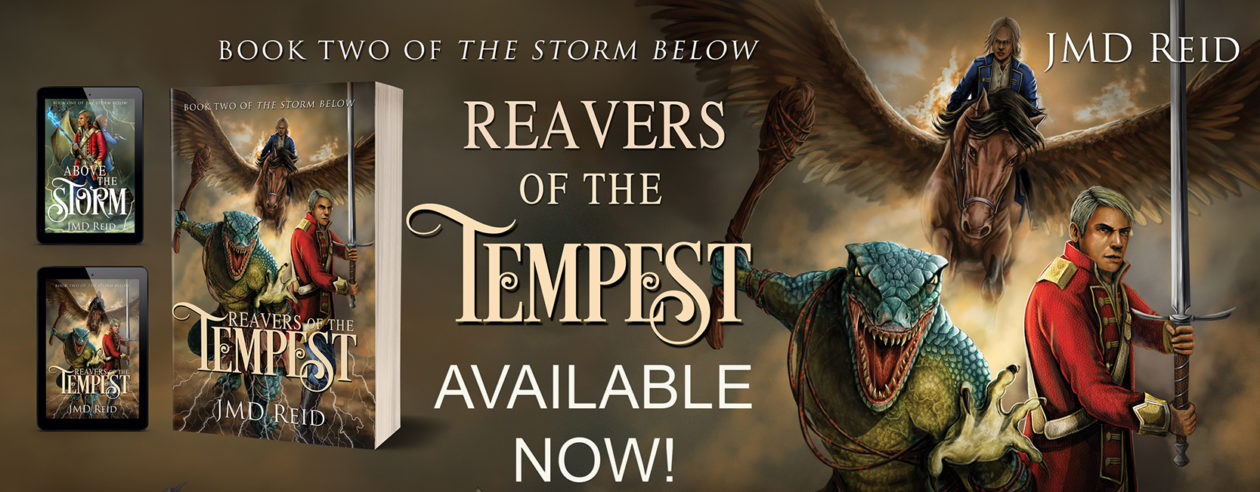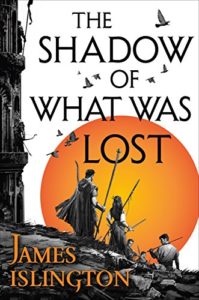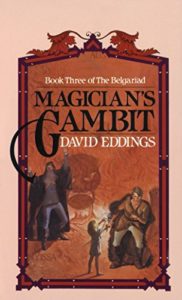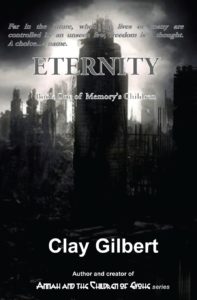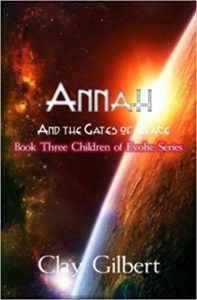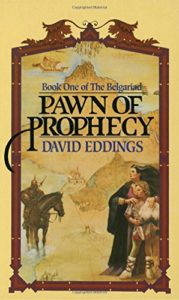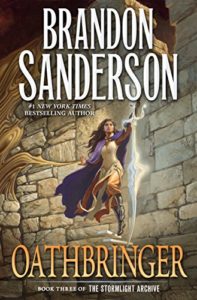Reread of Prince of Nothing Trilogy
Book 3: The Thousandfold Thought
by R. Scott Bakker
The Final March
Chapter 7
Jocktha
Welcome to Chapter Seven of my reread. Click here if you missed the Chapter Six!
Every woman knows there are only two kinds of men: those who feel and those who pretend. Always remember, my dear, though only the former can be loved, only the latter can be trusted. It is passion that blackens eyes, not calculation.
—ANONYMOUS LETTER
It is far better to outwit Truth than to apprehend it.
—AINONI PROVERB
My Thoughts
Wow, those are some quotes. But they really boil down to this: you can only be hurt by someone you love. And you can’t really love someone who pretends. So that guy who’s just faking it, he doesn’t really care, so he’s not going to inspire any real emotions, whether good one or bad ones. So what does that say about Esmenet. Only Achamian can hurt her? That she can’t actually love Kellhus because he fakes it (and the moment Esmenet realizes that Kellhus fakes it, her passion for him is lost).
Still, what a depressing thing to say. Makes you wonder who this anonymous woman is. Someone abused. Someone whose known a lot of men in her life. This letter says you can either have love and fear, or safety and emptiness.
The proverb does come off as very Ainoni. They are ones who like to shape reality to their liking. Better to find a work around to an unpleasant truth, then understand it. It’s easier on your conscience. It’s two interesting quotes to start the chapter with. On the surface, the second quote could be about the first one with a woman who outwits the truth about the two types of men. But these quotes are both about Cnaiür.
Cnaiür is a man who has passion. He blackens the eye. He’s not Kellhus. He doesn’t calculate. This is also why Esmenet falls out of love with Kellhus and stays in love with Achamian. Achamian never hits her, but he has passion for her. Kellhus doesn’t have passion, but he does have safety. And it’s for that safety that Esmenet stays. The second quote relates to Cnaiür at the end when he realizes by trying to outwit Truth, Kellhus, he instead apprehends it. But that doesn’t matter, because it leads to his capture.
Early Spring 4112 Year-of-the-Tusk, Jocktha
Cnaiür is eating in the privy dining hall of the Donjon Palace, noting how this place feels not only Fanim, but Kianene. He’s dining with Conphas and his generals plus the two nobles on loan from Proyas. They all are taking pains not to rub knees, a problem with Kianene tables requiring you to sit on cushions.
Conphas mentions lights were seen on Cnaiür’s terrace a few nights ago with Sompas providing half-hearted support, leading Cnaiür to think Sompas isn’t happy Conphas agreed to dine with Cnaiür. Meanwhile, Conphas is waiting for Cnaiür’s answer. Cnaiür ignores it, drinks wine, and notes Conphas still has bruises from his beating. He notes how Conphas had his “wardrobe dragged across the desert, Cnaiür mused, spoke volumes.”
Cnaiür had ostensibly summoned Conphas and his Generals here to discuss the arrival of the transports and the subsequent embarkation of his Columns. Twice now, he had quizzed the man on the matter, only to latter realize afterward that the answers the fiend provided only made apparent sense. But in truth, he cared nothing for the transports.
Conphas presses that the lights were “unnatural,” still waiting for Cnaiür’s answer. Refusing didn’t get the message through to Conphas since men like him “did not embarrass.” They do fear, though. As Cnaiür drinks his wine, he approaches Conphas, noting the man’s canny eyes, his cleverness, but also his worry. He’s spooked by this sorcerer. Cnaiür’s not surprised by that.
Was this, he wondered, how the Dûnyain felt?
Cnaiür wishes to speak about Kiyuth. As Conphas eats in the “effete twin-fork manner of the Nansur caste-nobility.” Cnaiür senses an elated manner about him. Conphas thinks he’s won. Cnaiür asks what Conphas would have done if Xunnurit didn’t attack. Conphas claims the genius of his plan was Xunnurit had to attack. Trinemus doesn’t understand but Sompas explains how Conphas used the demands of the seasons on the Scylvendi’s herds, how they would react to their fellows being raped, and then he brings up their arrogance but trails off looking at Cnaiür. General Imyanax takes it up, explaining how the Scylvendi see buggery as the “greatest of obscenities.” Cnaiür notes how the other generals reacts while Conphas is mater-of-fact about saying he did it.
For a long moment no one dared utter a word. Devoid of expression, Cnaiür watched the Exalt-General chew.
“War…” Conphas continued, as though it were only natural that men should hang on his enlightened discourse. He paused to swallow. “War is no different than benjuka. The rules depend on the moves made, no more, no less.”
Before he continued, Cnaiür said, “War is intellect.”
That gives Conphas pause, realizing that Cnaiür must have been among the dead when he talked to Martemus about his tactics after the battle. Conphas asks Cnaiür didn’t try to kill him, though Cnaiür believes he could have. Cnaiür says he was tangled up in thick grass and couldn’t move. Everyone else in the room feels the danger from Cnaiür save Conphas, who makes a joke about how “the field was mine.” No one laughed. Cnaiür orders everyone to leave.
At first no one moved—no one even breathed. Then Conphas cleared his throat. With an intrepid scowl he said, “Do it… do as he says.”
Sompas began to protest.
“Now!” the Exalt-General barked.
After they leave, Cnaiür stares at him. Conphas realizes if Cnaiür was the King-of-Tribes, Conphas would have lost. Cnaiür hints he would have then conquered the Empire. Cnaiür almost feels wonder as her realizes Conphas is just a boy, not the Lion of Kiyuth. He was in Cnaiür’s power now, another neck “as slender as any Cnaiür had broken.”
The Exalt-General pushed back his plate, turned to him in a manner at once jocular and conspiratorial. “What is it that resides in the hearts of hated foes, hmm? Save the Anasûrimbor, there’s no man I despite more than you…” He leaned back with a friendly shrug. “And yet I find this… unlikely repose in your presence.”
“Repose,” Cnaiür snorted. “That is because the world is your trophy room. Your soul makes flattery of all things—even me. You make mirrors of all that you see.”
Conphas laughs it off and doesn’t want to beat around the bush. Cnaiür slams his knife into the table and declares that this is the truth of the world. Conphas manages to “maintain his facade of good humour” despite his fear. Cnaiür say it is fear that moves Conphas, though Conphas tries to deny it but is cut off by Cnaiür cuffing him hard.
“You act as though you live this life a second time!” Cnaiür leapt into a crouch upon the table, sent plates and bowls spinning. Eyes as round as silver talents, Conphas scrambled backward through the cushions. “As though you were assured of its outcome!”
Conphas cries for Sompas, but Cnaiür hits him in the back of the head. He then bends Conphas over the table. Cnaiür undoes his belt then smashes Conphas’s face “against its own reflection” a few times. The watching slaves cringe and weep.
“I am a demon!” he cried. “a demon!”
Then he turned back to Conphas shuddering on the table beneath him.
Some things required literal explanation.
Cnaiür wakes up the next morning, hung over, and cleans himself of the “blood and soil smeared across his thighs.” Out the window, he sees the Nansur ships had arrived. He leaves and finds a captain named Troyatti, part of a group called the Hemsilvara (Scylvendi’s Men) who ride with him, to send word to ships that they harbor chain will be lowered only after they are searched, then he wants Conphas and his officers assembled on the Grand Quay. He orders the captain to make sure Ikurei is captured. Troyatti asks what worries Conphas. Cnaiür wonders if he can trust Troyatti and decides he can, saying the fleet arrived too soon like it was “dispatched before Conphas’s expulsion.” Cnaiür fears they hold reinforcements.
“Think of Kiyuth… The Emperor only sent a faction of the Imperial Army with Conphas. Why? To guard against my kinsmen, when they have been ruined? No. He saved his strength for a reason.”
The Captain nodded, his eyes bright with sudden understanding.
“Secure Conphas, Troyatti. Spill as much blood as you have to.”
Cnaiür rides to the Grand Quay and his men take fishing boats out to the Nansur boat while Sanumnis arrived with more soldiers. Soon, Cnaiür learns that while three of Conphas’s generals were found, Conphas and Sompas were somewhere in the city, looking for a physician to treat Conphas after he was beaten last night. Cnaiür orders the city sealed. Cnaiür’s nervousness is spreading by the time the Nansur officers are brought. Cnaiür threatens them if the transports are not empty. This angers them and General Areamanteras implies he knows what Cnaiür did to Conphas.
Scowling, Cnaiür approached the General, pausing only when he towered over him. “What did I do?” he asked, his voice strange. “There was blood when I awoke… blood and shit.”
Areamanteras fairly quailed in his shadow. He opened his mouth to answer, then tried to purse away trembling lips.
“Fucking swine!” Baxatas cried to Cnaiür’s immediate right. “Scylvendi pig!” Despite his fury there was fear in his eyes as well.
Cnaiür demands to know where Conphas is. Baxatas won’t meet his gaze. The boats he sent out to the waiting transports are now signaling. The ships are empty. By that afternoon, the ships are in the harbor, but Cnaiür keeps the gates shut because Conphas still hasn’t been found. Tarempas, the Nansur admiral, claims they had unexpectedly favorable winds.
Word comes that the Nansur Columnaries are rioting and protesting because they know the ships have arrived but they aren’t boarding. It grows worse when they learn Conphas has escaped. They are assembling outside the gate before a thin line of a hundred Conryian knights. Cnaiür says not to fight them, they are too outnumbered, and not to be concerned since they lack weapons and siege equipment and are not forming up as soldiers.
Troyatti brings word of a tunnel they found leading out of the city. Conphas had escaped. Cnaiür orders the search canceled and the tunnel collapsed. He feels something is wrong. “After so long with the Dûnyain, he knew the smell of premeditation.”
This would not be another Kiyuth.
Something… something…
Cnaiür abruptly rides to the Donjon Palace and finds Saurnemmi, the Scarlet Schoolman. He asks the man if he can burn the ships from the distance. They are interrupted by a signal horn blasting from the walls. He orders the Schoolman to burn the ship and rides for the walls. He gains the walls, joining Baron Sanumnis, and sees Nansur reinforcements marching from the hills, both Kidruhil cavalry and infantrymen.
“You’ve doomed us,” Sanumnis said in his periphery. His tone was strange. There was no accusation in his voice. Something worse.
Cnaiür turned to the man, saw immediately that Sanumnis understood their straits all too well. He knew that the Imperial transports had set ashore in one of the natural harbours to the north of the city, and there disembarked who knew how many thousands—an entire army, no doubt. And he knew, moreover, that Conphas could not afford to let even one of them escape alive.
Sanumnis complains that Cnaiür didn’t kill Conphas. Cnaiür feels week again as he says he’s no assassin. Sanumnis relaxes and they have a moment of understand before Cnaiür has intuition and glances at the harbor where he sees flashes of sorcery, realizing there are Imperial Saik Schoolmen on the transport. Cnaiür realizes someone has to survive so orders their four Chorae bowmen to kill a sorcerer and make them afraid. “With no infantry to prise their way, they’ll be loath to advance. Sorcerers are fond of their skins.”
Cnaiür is only giving the order to give hope to Sanumnis and his men that they are foiling Conphas’s plan, when in reality Cnaiür believes the Schoolmen are just to keep them from escaping by sea while Conphas forces through the main gate. But it helps with his men’s morale. Then Cnaiür says under cover of dark, they will withdraw from the city and attack the forces, bleeding them. To inflict as many casualties as possible upon them. Saying these words sparks something in Sanumnis and Cnaiür must fan it. He turns to the soldiers, telling them that the Nansur will grant no quarter because they can’t afford the Truth to escape.
He [Cnaiür] let these words ring into silence.
“I know nothing of your Afterlife. I know nothing of your Gods or their greed for glory. But I do know this: In days to come, widows shall curse me as they weep! Fields shall go to seed! Sons and daughters shall be sold into slavery! Fathers shall die desolate, knowing their line is extinct! This night, I shall carve my mark into the Nansurium, and thousands shall cry out for want of my mercy!”
And the spark became flame.
“Scylvendi!” they roared. “Scylvendi!”
Later that night, Cnaiür waits with his soldiers while the Nansur’s outside prepare for their assault while the Imperial Saik stay on the ships, controlling the harbor. The defenders have been busy destroying knocking down walls in the warren of tenements outside the main gate, turning it into a confusing labyrinth. His men wait dispersed through it to lie in ambush.
This was not, Cnaiür realized, what the Dûnyain would do.
Either Kellhus would find a way—some elaborate or insidious track—that led to the domination of these circumstances, or he would flee. Was not that what had happened at Caraskand? Had he not walked a path of miracles to prevail? Not only had he united the warring factions within the Holy war, he had given them the means to war without.
No such path existed here—at least none that Cnaiür could fathom.
Cnaiür wonders why he isn’t fleeing by himself instead staying with these “doomed men.” Kellhus had taught Cnaiür that he was “enemy of all.” He had only “coincidental interests” with these men. Cnaiür stood “beyond origin or outcome.” He was beyond everything and stood “nowhere.” Troyatti asks what amuses Cnaiür. “That I once cared for my life.”
The attack begins. The gates are battered down by sorcery. The Nansur’s march in rank by rank, following their training to “strike hard and deep, cut upon your enemy’s flank, sever him from his kinsmen.” This leads the Nansur into Cnaiür’s ambush. They fall on the infantrymen’s flanks from both sides, hacking deep into the middle of their ranks only to retreat into the ruined buildings.
The battle that followed was unlike any Cnaiür had experienced. The pitch of night struck in the hues of sorcerous light Catching unawares and being so caught. Hunted and hunting through a labyrinthine slum then warring in open streets, hilt to hilt, spitting blood form one’s teeth. In the dark, his life hung from a thread, and time and again only his strength and fury saved him. But in the light, whether by moon or, more likely, the burning of nearby structures, the Nansur flinched from him and attacked only with the haft of their spears.
Conphas wanted him.
Cnaiür had not the arms for the swazond he earned that night.
As the night goes, Cnaiür loses more men, including Sanumnis and Troyatti. He finds himself down to three Conryians and six Thunyeri. They make their last stand in a ruined Fanim Tabernacle. They fight and kill until Cnaiür stands with a lone Thunyeri while “the dead formed a skirt of tangled limbs across the steps below them.” The Thunyeri takes a spear in his throat. Alone, Cnaiür roars “Demon!” as they try to kill him. He kills them, iron to their “rotted leather.”
He was of the People.
Without warning, the Nansur relented, crowded back into the shields of those behind, away from the advance of his dripping aspect. They stared in horror and astonishment. All the world seemed afire.
“For a thousand years!” he grated. “Fucking your wives! Strangling your children! Striking down your fathers!” He brandished his broken sword. Blood spilled in loops from his elbow. “For a thousand years I have stalked you!”
He throws away his broken sword and grabs a spear, killing a soldier. Conphas is in the background now, screaming for them to take Cnaiür. They surge at him and beat him down like “howling apes.” After he’s captured, he’s brought before Conphas whose face is still bruised and swollen from Cnaiür’s. However, Conphas’s eyes are the same. He says Cnaiür is no different from Xunnurit
And as the darkness came swirling down, Cnaiür at last understood. The Dûnyain had not sent him to be Conphas’s assassin…
He had sent him to be his victim.
My Thoughts
Interesting that Cnaiür knows Conphas is stalling, but then so is Cnaiür. He just has to kill the man, but is putting it off, inadvertently giving Conphas a lifeline.
Of course Conphas is spooked by the possibility of another sorcerer since he believes he has Cnaiür’s Scarlet Schoolmen under compulsion.
Well, Cnaiür, reading people like books is how the Dûnyain see the world. Feel… well, that’s a word they don’t really know since they murder their emotions or end up lobotomized.
Biaxi Sompas, coming from a rival family, has been won over by Conphas’s prowess. He’s like a fresh religious convert who usually number among the most zealous. He was raised seeing the Ikurei’s as the bad guys only to learn how amazing Conphas is, which means he has to be the most fervent in showing his support.
Once again, Bakker reminds us of Conphas’s intelligent with him figuring just how Cnaiür must have heard that phrase. This is followed by Bakker showing us how Conphas’s narcissism has handicapped him because he can’t sense the danger, only that he sees a chance to belittle Cnaiür, clearly taking his excuse of being knotted in grass as a weakness in the man.
You know what they say, never meet your idols. In a way, Cnaiür has obsessed over Conphas, too, adopting his war is intellect motto. Unlike Moënghus, Conphas is a man Cnaiür can best, not the mighty Lion of Kiyuth that was somehow more than human. Of course Cnaiür is disappointed.
More cutting observation from Cnaiür on Conphas’s narcissism. People see what they want to see in someone’s actions.
It takes a very self-deluded arrogance and narcissism to go through life like nothing will hurt you. To forget that suffering and misfortune comes to us all. We cannot keep the chaos of the world from intruding upon the order of our lives forever.
Nice touch on Bakker, making the table mirror-smooth as a motif then having Cnaiür bash Conphas’s head into his own refection, driving home the man’s narcissism.
Well, I guess raping Conphas is a “literal explanation” about the powerlessness Conphas truly is at the moment.
If you don’t know what a harbor chain is, they’re real things. It’s a long, thick chain that is stretched over the mouth of a harbor and can be raised. Ships can’t pass it. The most famous of these chains would be the one across the Bosphorus at Constantinople
I generally think Bakker is an author who sets things up and remembers about all the diverse groups. So it’s weird that suddenly the Hemsilvara, these young Conryian men who hero worship Cnaiür and to whom he had taught them about being Scylvendi until right now when he needs to use this character versus one of the other Conryians. His first mention, in this book, is at the start of the dinner in this chapter. They could have been mentioned earlier in the book, even explaining what the Hemsilvara where before this moment. This should have been fixed in rewrites as it strikes me as, while writing the rough draft, Bakker realized he needed this character and his background then forgot to seed it into the earlier part of the manuscript. It’s a little nitpick that doesn’t from the rest of the story.
Cnaiür does not remember the previous night. He had raped a man and probably didn’t like how much he enjoyed it and, to protect his identity, forgot he had done something so blatantly homosexual.
Nice bit of subversion. We’re expecting the transports to be full, and clearly Conphas knows this will be expected. But he’s fled, using is own assault last night as an excuse to vanish from his lodgings. Cnaiür knows something is up, but he has no idea what.
Cnaiür, despite teaching Conphas fear, despite all his care, was outmaneuvered. Just like he was at Anwurat. Cnaiür is a great tactician and a keen intellect, but that doesn’t mean he can’t mistake. Just like despite Kellhus’s intelligence, he can’t make mistakes. Bakker is reminding that while at the same time building the tension. You know the trap is about to be sprung, but will Cnaiür see it and counter it in time.
The narrative shifts from Cnaiür being in power to how he’s Cnaiür getting out of this alive.
Ultimately, fear ruled Cnaiür. He was afraid of killing Conphas because it would mean he no longer had any use to Kellhus. Therefore, Cnaiür would lose his only path to Moënghus and vengeance. Not killing Conphas definitely has lead to that path. Good thing the Consult is throwing him a lifeline.
Nothing like being the underdog and thinking you did something to the giant enemy. It could give Cnaiür’s forces the morale that might allow some of them to survive.
Great speech from Cnaiür. We’re going to die, but we’re going to make them pay. Get them angry. Get them mad at the situation. Then give them an enemy to destroy.
His plan is great. The Nansur are rigid soldiers designed to fight on open battlefield. So he gives them asymmetrical warfare, hitting the disciplined soldiers in their flanks then not standing to fight. It’s a great plan, but he doesn’t have the numbers to prevail. So it’s why they’re just turning it into a bloodbath, a final fuck you to the Nansur and Conphas.
“Cnaiür had not the arms for the swazond he earned that night.” Great world building allows you to have lines like that to say, “Cnaiür killed a lot of men.”
“He was the People.” Cnaiür has embraced being Scylvendi. He’s going to die killing the Nansur. This is the only way he can feel like a Scylvendi: killing. Murdering. Butchering.
Conphas’s eyes are the same. All he’s been through hasn’t changed him at all. He is the only character not to change at all. Even Kellhus changes. That’s some commentary on a true narcissist right there.
So Cnaiür thinks this is all to Kellhus’s plan, and maybe it is, but I have my doubts. If Achamian hadn’t stepped up to stop the Nansur army, because Cnaiür survived this and revealed the truth to Achamian, then the Nansurs would have fallen on the Holy War. Kellhus probably would have prevailed, but it’s better to have Cnaiür just kill him here. It’s possible an all options prove beneficial. But Kellhus isn’t fallible. He made mistakes. He got lucky with giving Saubon his blessing. And he got lucky that he survived the Circumfix. He didn’t see how to get passed it, only that he needed to get passed it to win. He gambled and paid off. But Cnaiür, he sees Kellhus as near omnipotent.
And we end this chapter with a variant of Bakker’s favorite expression “darkness came swirling down” instead of death.
Hi, if you like my Analysis, you can connect with me on Facebook and Twitter, and you can check out my short stories on Amazon! Also, please leave any comments or criticisms below! They help keep me motivated!
If you want to keep reading! Click here for Chapter 8!
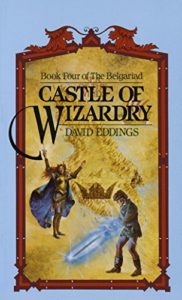 In the ruins of Rak Cthol, Garion and his companions have accomplished their goal. They have recovered the Orb of Aldur. But Belgararth the Sorcerer lies in a stupor, exhausted by his magical duel with Ctuthik and the mountains keep shakes from the earthquakes. They are deep in enemy territory and will have to use their wits to escape.
In the ruins of Rak Cthol, Garion and his companions have accomplished their goal. They have recovered the Orb of Aldur. But Belgararth the Sorcerer lies in a stupor, exhausted by his magical duel with Ctuthik and the mountains keep shakes from the earthquakes. They are deep in enemy territory and will have to use their wits to escape.